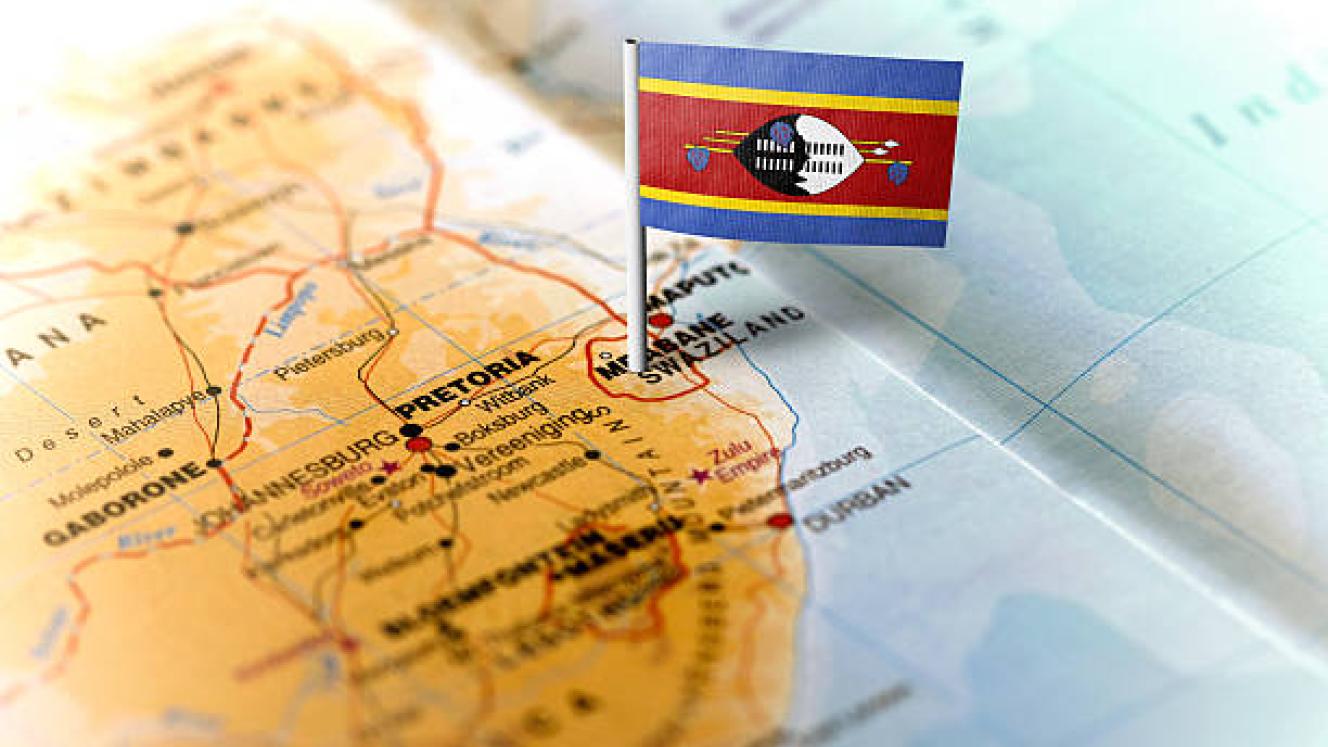MANZINI, ESWATINI – A week of unprecedented civil upheaval that saw the most widespread protests in the country’s history has severely disrupted the road transport system. Demonstrators have targeted all highways for closure as a means of shutting down the country and slowing the movement of the military, which King Mswati deployed to restore order. Burning tyres and large stones were used throughout the week for impromptu barricades on roads leading to the major towns.
“For their own safety, we kept our drivers off the road from Monday through Thursday,” said Eric Simelane, company manager for an overborder trucking firm in Matsapha.
Matsapha, the country’s industrial centre, was hard hit by arson and vandalism during the most extensive demonstrations (with accompanying opportunistic criminal activity) seen in Eswatini’s history. Trucks found en route on Tuesday were stopped by protesters and vandalised. At least two big rigs were burned on the main MR3 highway. The central business districts of the southern and northern provincial capitals, Nhlangano and Pigg’s Peak, were extensively damaged. Petrol shortages were widespread.
A kilometres-long queue of trucks that was reported at the main border post with South Africa at Oshoek for most of the week began to ease by the weekend. Drivers expressed trepidation about entering the country, but this became a moot point due to the inability of the Eswatini Revenue Authority (ERA) to clear goods. Customs clearance was impossible after government shut down the internet at 2pm on Tuesday. On Friday, attorneys for various plaintiffs filed lawsuits against the Eswatini Communications Commission to overturn the ECC’s decision to block the internet.
A source with the ERA told Freight News that a means of clearing goods had been put in place on Thursday afternoon, allowing some trucks from South Africa to enter Eswatini if they chose.
“Eswatini is a landlocked country that depends on road shipments of goods from South Africa,” Musa Maseko, head of trade and commerce for Business Eswatini (formerly the Federation of Swaziland Employers/Chamber of Commerce) in an interview with Freight News. “Particularly affected are the supermarkets, which are branches of South African companies and source their goods from Gauteng. We are doing all we can to get the border posts functioning and resume normal flow of traffic. The security situation has improved as of this morning (Friday), which is important for drivers’ safety.
“Deliveries to the townships are really unnecessary because all the shops have been burned or gutted,” said Simelane. “The central business districts of Manzini and Mbabane will see business as usual when deliveries resume from South Africa because they were better protected,” he said.
After a particularly fiery Tuesday night, transportation companies’ fears that the uprising had targeted Eswatini’s fuel depots in Matsapha, where Shell, Total and other petrol suppliers maintain their storage tanks, were allayed. However, some petrol trucks were damaged. Although this is the height of cultivation of Eswatini’s biggest export, sugar, less seasonal transport will be required in the lowveld sugar plantations after R120 million in damage was incurred from the burning of Royal Eswatini Sugar Corporation cane fields. A double-trailer truck bearing sugar cane was burned in Matsapha
Political analysts cannot predict when another such disruption could occur. The road freight industry is learning what lessons it can take away from this past week’s emergency. They are focusing on safeguarding workers and property, while liaising with security forces for future measures such as police-escorted convoys to ensure delivery of vital goods.













